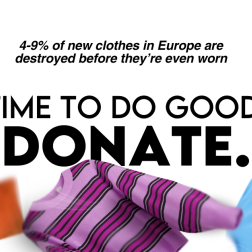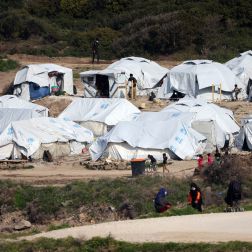- 4 mins read time
- Published: 11th October 2021
A different attitude towards waste in Jordan

The saying goes "One person's trash is another person's treasure". Well, maybe not a treasure in this case but "an opportunity to provide for my family" as described by Om Ghazi.
Om Ghazi, a 38-year-old Jordanian mother, is one of the people we work with from Oxfam's "Improving livelihoods through green jobs project" implemented in the host community in Mafraq, 70km northeast of the Jordanian capital Amman.
Om Ghazi, along with 200 other Syrian and vulnerable Jordanians are given green job opportunities, where individuals collect recyclable materials from their surroundings. The collected material is then transferred to a nearby facility to be sorted, processed, and recycled to be reused in local and international markets.

Waste collection was never considered to be a stable job in this area. However, the economic situation substantiated in rising unemployment and poverty rates drove people to "cling on to any opportunity that comes their way," says 23-year-old Muath, another beneficiary of the project.
"People around here are desperate for an opportunity, they want to work but only a few find jobs," added Muath.


Mafraq is Jordan's second largest governorate, it neighbors the Syrian borders and has seen a massive influx of Syrian refugees who resided there following a decade long war. This posed immense pressure on municipal services such as solid waste management.
Oxfam's project is designed to promote awareness of sound environmental practices while creating green jobs for vulnerable Jordanians and Syrians and supporting municipalities and host communities to better manage solid waste through an 800 square meter facility recycling plastic, cardboard, e-waste, and metals

Wafa, 39, a single mother of four, joined the program in July 2021 and started collecting recyclable materials from her surroundings in Khalideh-Mafraq. Little did she know that she would become an environmental champion within her community.
"I was oblivious to the applications of recycling, but I learned and received the knowledge and know-how on basic recycling methods. I learned how to make use of my household recyclables, and I now share this knowledge with my neighbors and friends,” said Wafa’a.
Wafa’a continued saying “my children are proud of what I do, and I am proud to be part of this environmental movement.”
Most participants battle a culture that undermines their ambitions, goals, careers, and motives dubbed in Jordan as the "culture of shame."
My eldest son -18 years old- and I usually stroll and collect cardboard from the nearby markets. At first, he used to tell me about the 'odd looks and comments from his peers' and so did I, but I grew past that because I believe that there is no shame in work," said Om Faisal, a mother of five.
6% of all green jobs provided through the project were allocated for people with disabilities who remain among the most vulnerable segments.
22-year-old Yusra, has speech and hearing impairment, but she maintains an active role in her community. She sat down with Oxfam staff to describe her experience.She signed her words as her father translated.
"I applied and after a couple of weeks I was told that I was accepted, it made me feel happy to have a role, to help and take part," signed Yusra as her father translated. The repercussions of the pandemic are most felt by the less fortunate, as they continue to battle new challenges in light of shrinking opportunities. To most, waste collection was never an option, but for some, it is an opportunity today and it "happens to make things better and cleaner around us," added Om Ghazi.
The project partnered with different grassroots and community-based organizations to raise awareness and engagement regarding recycling and upcycling."Yes, we live in a poor area, but it is rich with compassion, everyone helps around here, some would keep the recyclable material aside for me to collect later, I think it is because they saw the impact on the community," ended Om Ghazi.
Oxfam, funded by the Australian Aid (DFAT) continues to support Syrians and Jordanians in host communities to better their surrounding while providing green job opportunities and skills training helping them achieve self-sustainability.




